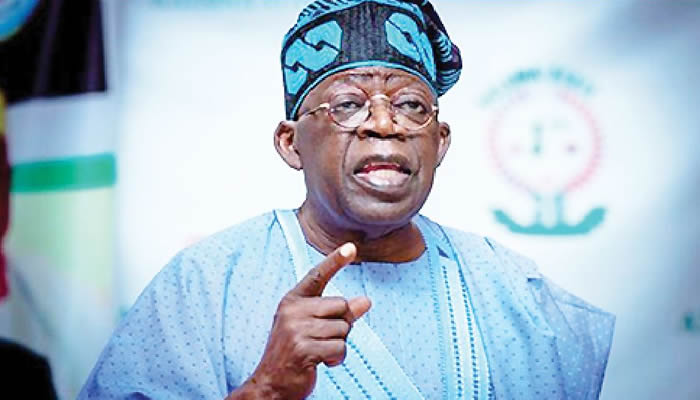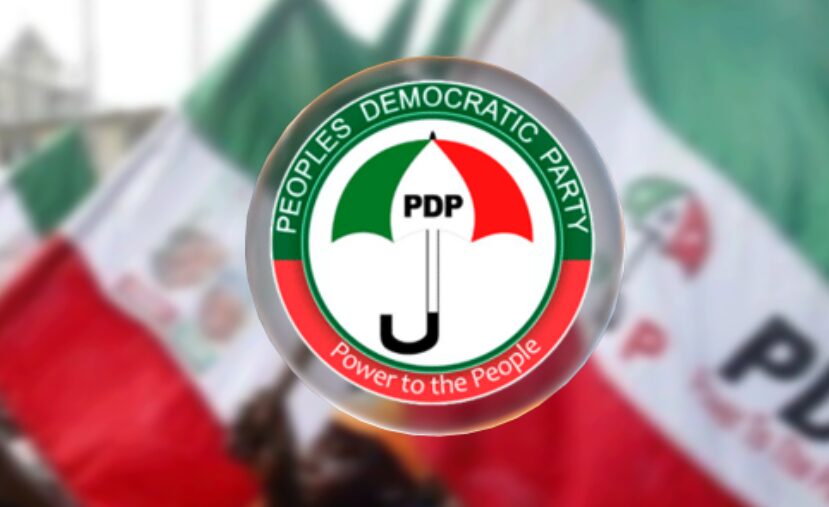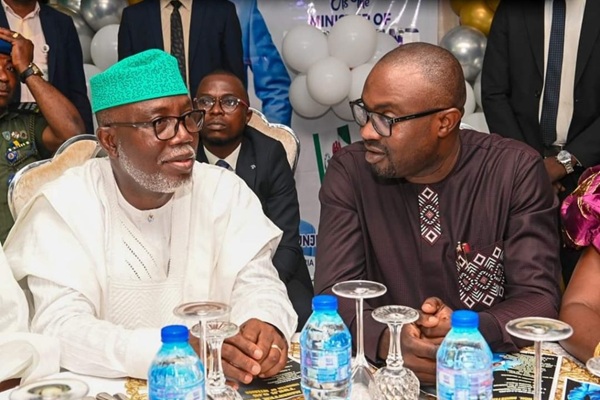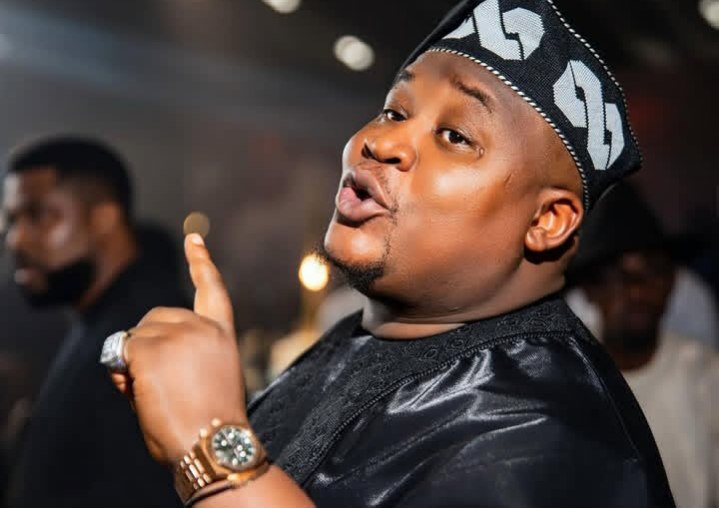The long-simmering debate over Nigeria’s power rotation arrangement flared up again on Tuesday as northern political leaders, technocrats, traditional rulers, and civil society actors converged on Kaduna to assess President Bola Tinubu’s performance two years into his tenure.
The high-powered meeting, convened by the Sir Ahmadu Bello Memorial Foundation and held at the historic Arewa House, brought together some of the most influential voices from across the 19 northern states and the Federal Capital Territory.
The two-day event, themed “Assessing Electoral Promises: Fostering Government-Citizen Engagement for National Unity,” underscored both the region’s weight in national politics and the urgency of the questions being asked about Nigeria’s future under Tinubu.
Top dignitaries in attendance included the Secretary to the Government of the Federation, Senator George Akume; the National Security Adviser, Nuhu Ribadu; the Chief of Defence Staff, Gen Christopher Musa; and other service chiefs — all northerners appointed by Tinubu.
Representing the President, Akume assured the gathering that Tinubu’s “Renewed Hope Agenda” was already delivering results.
North should wait
In what appeared to be a warning to northern politicians already preparing for 2027, Akume reminded the gathering that by the principle of rotation, the North’s turn would not come until 2031.
“In 1999, northern patriots like Solomon Lar, Adamu Ciroma, Abubakar Rimi, and Jerry Gana agreed that power rotation is key to peace and national cohesion. Based on that unwritten understanding, the North will be eligible again in 2031,” he declared.
He urged patience, saying, “Let us be patient. Nigeria will not cease to exist before 2031. When it’s our turn, the nation will know.”
Afenifere, MBF react
The Middle Belt Forum expressed agreement with Akume on the issue of power rotation in Nigeria.
In an interview with The PUNCH in Jos on Tuesday, the National President of the Middle Belt Forum, Bitrus Pogu, said as long as the country practices rotation, which is a gentleman’s agreement rather than a constitutional provision, Akume’s statement that the North should wait until 2031 for the presidency holds water.
Pogu emphasised that the agreement on rotation was initially made by the PDP, not the APC, but believes it’s essential to respect such arrangements for peaceful transition and coexistence in a plural society like Nigeria.
“Yes, a southerner is in the presidential seat at the moment, and another southerner could contest for the seat; then the North should be patient till 2031,” Pogu stated.
However, Pogu lamented that Nigeria’s current situation is “unfortunate” due to the country’s inability to transcend ethnic and regional divisions.
“We are still at an archaic arrangement where anybody who comes in tries to satisfy his people to the maximum at the expense of others,” he noted, highlighting the need for a more inclusive and nationalistic approach to leadership.
While the Middle Belt Forum acknowledges the current power rotation arrangement, Pogu believes that Nigeria’s divisions are a legacy of British colonial rule and that a radical shift in approach is needed to foster national unity.
“It will take some radical person coming on board to be able to dismantle this thing so that Nigerians from anywhere, given his pedigree, can become president,” he said, expressing hope for a more united and inclusive Nigeria in the future.
The pan-Yoruba socio-political organisation, Afenifere, threw its weight behind Akume.
Speaking with The PUNCH on Tuesday, the Organising Secretary of the group, Kole Omololu, said, “We commend the SGF’s firm and principled articulation of the necessity to uphold the unwritten but nationally recognised convention of power rotation.
“It is our conviction, and evidently his as well, that for the sake of equity and cohesion, the Presidency must remain in the South until 2031.
“This position, rooted in historical precedent and political decorum, is a stabilising message that Nigerians of goodwill should embrace. The call for restraint by Northern politicians who are prematurely eyeing the 2027 contest is both prudent and patriotic.
“Akume’s clarification that the Renewed Hope Agenda is not an empty slogan but a structured governance blueprint deserves commendation.
“His emphasis on transparency, rule of law, and participation as guiding principles reflects the kind of clarity and accountability that must characterise public service.
“It is incumbent upon every region, particularly those who overwhelmingly supported the present administration, to assess government performance not by sentiment, but through data, delivery and strategic impact.”
He added, “We note the ongoing projects listed, including the rehabilitation of the Kaduna refinery, the expansion of gas pipelines, and railway lines connecting economic corridors. These are significant undertakings which, if completed with sincerity and competence, can catalyse regional development and foster national integration. While economic reforms have no doubt caused hardship, the long-term benefits, as outlined, must be communicated with honesty, not propaganda.
“Afenifere appreciates the composure and statesmanship displayed by Akume. At a time of deepening socio-political anxieties, his intervention is both reassuring and necessary.
“We call on other senior public figures to emulate such candour, and for all Nigerians to prioritise national interest above sectional ambition.”
LP, NNPP speak
The National Publicity Secretary of the New Nigeria People’s Party, Ladipo Johnson, warned against barring northern candidates from contesting the 2027 presidential election.
Johnson said if President Tinubu could disrupt the delicate religious and ethnocentric political balance the country has been practising before 2023, nobody should grandstand with the rhetoric of fielding only a Southern candidate.
He said, “We had developed a culture where we felt two things were sacrosanct, which were Muslim-Christian or Christian-Muslim tickets, and the rotation from North to South.
“However, you will see that at the last election, the issue of a mixed ticket to keep some form of balance in the country was jettisoned.
“Today, we have a Muslim-Muslim ticket in governance, and the country hasn’t collapsed. So why would anyone think the country would collapse or go bad if the northern candidate wins in 2027?
“There must not be a restriction because when there was none regarding religious balance, why should there be a restriction regarding where the person comes from?”
The Deputy National Chairman of the Labour Party, Dr Ayo Olorunfemi, also shared his sentiment.
According to him, what Nigeria should be more concerned about is the competence and intellectual ability of the candidates, not the region.
He said, “We have opened our doors for anybody who wants to contest, whether you are from the South or the West. It’s not all about zoning, but getting the right leader for Nigeria.
“So if the person is coming from the North or South, he is welcome. As far as we are concerned, there is no hard and fast rule about this. It’s about the people of Nigeria and our economy. It’s about security, health, technology, and a country we can truly call our own in terms of culture and values.
“Labour Party is determined to help Nigerians by bringing somebody, regardless of where he is coming from, who jas the capacity to turn this nation around.”
Babachir slams Akume
A former SGF, Babachir Lawal, said it would be foolhardy of the APC and ministers in Tinubu’s cabinet to ask the North to wait for 2031 before fielding a candidate for election.
Lawal said it would amount to mockery, knowing that Tinubu and the ruling party were the ones who broke the unwritten agreement on power rotation in the country when they introduced a Muslim-Muslim ticket into the political equation.
He queried, “Are competent people found only in the South? Is that what Akume and Tinubu are saying? Let me know if there is a document somewhere that says it is the turn of Southerners again.
“I don’t think it is written anywhere that you can’t truncate the tenure of a bad president just because he is from the South. If the APC fields a Southern candidate, that is their choice, not our own.
“We shouldn’t be talking about the APC. These are people who have no standard at all.
“How can somebody who fielded a Muslim-Muslim ticket, when the standard has not always been the same faith ticket, suddenly turn around and start demanding that a standard must be followed?
‘When he broke the implied understanding, why didn’t he say that before? Even in the military, it has always been Muslim-Christian or Christian-Muslim. Why is he now saying it’s the turn of the South? Even the Southerners are not comfortable with his government.
“I once told you in an interview that Tinubu and his people have opened Pandora’s box. Now, they can’t hold anybody to any standard. They can’t have their cake and eat it.”
APGA, PDP react
The All Progressives Grand Alliance threw its weight behind the call for the South to produce Nigeria’s President in 2027.
Speaking exclusively with The PUNCH, the National Publicity Secretary of APGA, Ejimofor Opara, said the party would prioritise the South when it was time to pick its presidential flagbearer.
He said, “It is the turn of the South to produce the president in 2027. We will certainly promote a southern candidate,” adding that “More importantly, the progressives will surely work together come 2027.”
He, however, made it clear that the party would have nothing to do with the ADC-led coalition being championed by former Vice President Atiku Abubakar.
“APGA is not part of any coalition of spent politicians. Their mission is unpatriotic. It is nothing about the people. Thus, we don’t consider them to be progressives by their very ideals,” he added.
But the Peoples Democratic Party maintained that Nigerians would ultimately decide Tinubu’s fate at the ballot box.
PDP spokesman, Debo Ologunagba, said: “By 2027, Nigerians will vote them out because they have failed—failed woefully. So, they won’t be there till 2031.”
With voices for and against a southern presidency growing louder, the Kaduna parley has set the stage for what promises to be an intense build-up to the 2027 elections — one that could redefine Nigeria’s delicate balance of power.
Kwankwaso under fire
A former Deputy National Publicity Secretary of the All Progressives Congress, Yekini Nabena, faulted recent remarks by Kwankwaso concerning national development and project allocation.
In a statement released on Tuesday, Nabena dismissed Kwankwaso’s claims, insisting that no ethnic, religious, or regional sentiment could undermine the legitimacy of a Southern presidency.
He stressed that the South’s completing eight years in power was non-negotiable.
Kwankwaso, who contested the 2023 presidential election under the New Nigeria People’s Party, had accused the Federal Government of disproportionately favouring the South in project distribution, citing poor road infrastructure in the North and a concentration of development in the South.
However, the Presidency refuted his claims by releasing a list of projects, which showed that President Bola Tinubu’s administration had allocated more funds to northern projects than those in the South.
Also responding to Kwankwaso, Nabena alleged that “the former governor’s real intention was to incite the northerners against the current administration and the re-election of a southerner in 2027 to complete eight years of a Southern presidency in the seat of power.”
The APC chieftain said such incitement for “a political business or negotiation, like some politicians did in 2019 and 2023, could no longer work because the people now know the real intention.
“The Kano voters now know who is using them for political business, and even the political gladiators now understand the tactics of political merchants.
“Is the North inferior or superior to the South after eight years of the North in the helm of affairs of Nigeria?
“Why is Senator Kwankwaso still complaining of underdevelopment in the North when the region has just completed its eight years?
“One will also wonder which of the northern money or resources was used to develop the South? Is it the gold, rice, or groundnut pyramid?
“As a politician, we all understand what the former governor is up to. He is working hard to incite the North against the Southern presidency, but that has failed woefully because the South must complete the eight years in the presidency for fairness and equity.”
The former APC spokesperson firmly stated that Kwankwaso lacked both the ability and influence to intimidate the South ahead of the 2027 general elections.
“You cannot intimidate the South or anybody with Kano votes any longer because, as politicians, we all know the game and what you are up to.
“The era of playing religious or ethnic cards is becoming far unfashionable,” Nabena warned.
FOLLOW US ON:
FACEBOOK
TWITTER
PINTEREST
TIKTOK
YOUTUBE
LINKEDIN
TUMBLR
INSTAGRAM


























